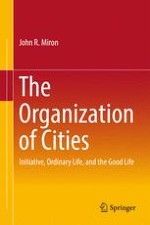
2017 | OriginalPaper | Buchkapitel
1. The State, Decentralization and Entitlement, and the Organization of Cities
verfasst von : John R. Miron
Erschienen in: The Organization of Cities
Aktivieren Sie unsere intelligente Suche, um passende Fachinhalte oder Patente zu finden.
Wählen Sie Textabschnitte aus um mit Künstlicher Intelligenz passenden Patente zu finden. powered by
Markieren Sie Textabschnitte, um KI-gestützt weitere passende Inhalte zu finden. powered by